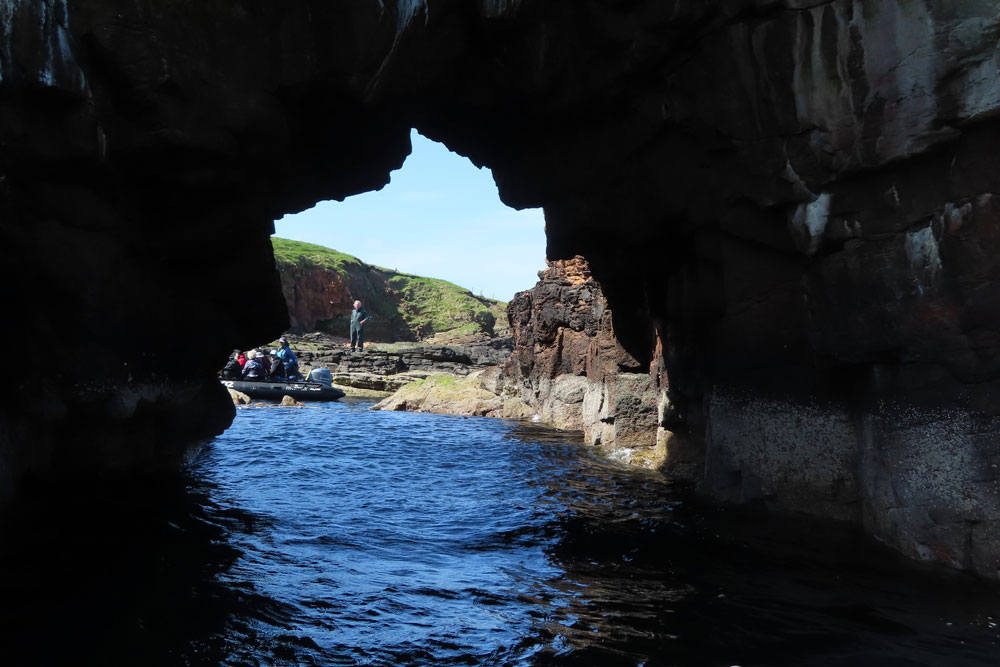

 |
 |
A spectacular coastline greets visitors to Papa Stour. The island has layers of ancient volcanic lava and ash; and the softer volcanic rocks have been carved by waves into arches, sea caves, cliffy inlets and rock stacks. These dominate the landscape from both sea and land. The Maiden Stack guards the island’s harbour and is so named because the Viking Lord Thorvald Thoresson marooned his daughter in a small house on the stack to protect her virtue. One story says she escaped by eloping with a fisherman, whilst another tale states she left the stack pregnant!
A handful of resilient people still live on Papa Stour Island. In its heyday in the 19th century, the small island of 828 hectares (2046 acres) supported a thriving fishing industry based on six-oared row boats. Fishing is only a small operation today. Crofting, or small-scale farming has been a traditional activity and is still conducted with sheep as hardy as the crofters who tend them. Marine wildlife thrives around Papa Stour. Cliffs, rock stacks and hills support many breeding seabirds in spring and summer.
The most travelled bird of all—the Arctic Tern—breeds here. In winter, these plucky small seabirds migrate all the way to the Antarctic. Occasionally European Otters are sighted amongst the kelp. Common and Grey Seals give birth to their pups onshore in summer. Common Seals rest on rocks with their tails and noses up, resembling bananas in shape. Grey Seals are larger, with a long nose, and no fruit copying tendencies.
We had a Zodiacs tour to explore the shores of Papa Stour. The erosion of the soft volcanic rocks by the sea has created an extraordinary variety of caves, stacks, arches, blowholes, and cliffs. The island and its surrounding seas harbour diverse populations of wildlife. Apart from the magnificent scenery, we saw Atlantic Puffin, Arctic and Common Tern, Razorbill, Curlew, Wheatear, Ringed Plover and Great Black-backed Gull- maybe!.
Click on any thumbnail photo and get a larger photo
 |
 |
 |
 |
 |
 |
 |
 |
 |
 |